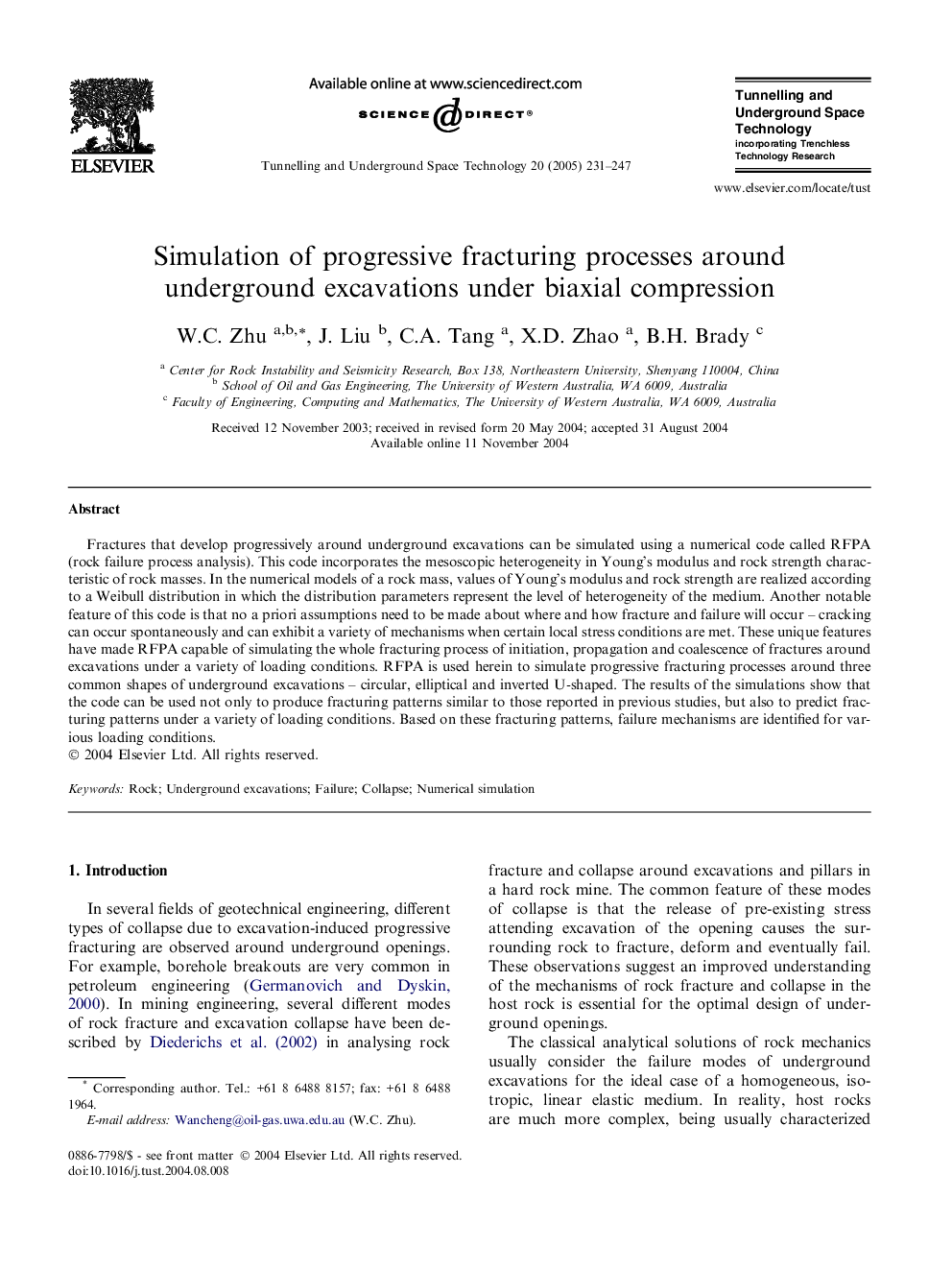| Article ID | Journal | Published Year | Pages | File Type |
|---|---|---|---|---|
| 10296495 | Tunnelling and Underground Space Technology | 2005 | 17 Pages |
Abstract
Fractures that develop progressively around underground excavations can be simulated using a numerical code called RFPA (rock failure process analysis). This code incorporates the mesoscopic heterogeneity in Young's modulus and rock strength characteristic of rock masses. In the numerical models of a rock mass, values of Young's modulus and rock strength are realized according to a Weibull distribution in which the distribution parameters represent the level of heterogeneity of the medium. Another notable feature of this code is that no a priori assumptions need to be made about where and how fracture and failure will occur - cracking can occur spontaneously and can exhibit a variety of mechanisms when certain local stress conditions are met. These unique features have made RFPA capable of simulating the whole fracturing process of initiation, propagation and coalescence of fractures around excavations under a variety of loading conditions. RFPA is used herein to simulate progressive fracturing processes around three common shapes of underground excavations - circular, elliptical and inverted U-shaped. The results of the simulations show that the code can be used not only to produce fracturing patterns similar to those reported in previous studies, but also to predict fracturing patterns under a variety of loading conditions. Based on these fracturing patterns, failure mechanisms are identified for various loading conditions.
Related Topics
Physical Sciences and Engineering
Earth and Planetary Sciences
Geotechnical Engineering and Engineering Geology
Authors
W.C. Zhu, J. Liu, C.A. Tang, X.D. Zhao, B.H. Brady,
